Privacy Policy
Information about your health and care helps us to improve your individual care, speed up diagnosis, plan your local services and research new treatments. The NHS is committed to keeping patient information safe and always being clear about how it is used.
Data shared with other organisations
We receive information about your health from other organisations who are involved in providing you with health and social care. For example, if you go to hospital for treatment or an operation the hospital will send us a letter to let us know what happens. This means your GP medical record is kept up-to date when you receive care from other parts of the health service. There are also a number of Digital Tools that are centrally managed by North East London Integrated Care Board which help support your direct care and improve the way care is delivered in the future. To view the fair processing notice for these tools follow this link: www.northeastlondon.icb.nhs.uk/legal-information
How your data is used
Information about your individual care such as treatment and diagnoses is collected about you whenever you use health and care services. It is also used to help us and other organisations for research and planning such as research into new treatments, deciding where to put GP clinics and planning for the number of doctors and nurses in your local hospital. It is only used in this way when there is a clear legal basis to use the information to help improve health and care for you, your family and future generations.
Wherever possible we try to use data that does not identify you, but sometimes it is necessary to use your confidential patient information.
You have a choice
You do not need to do anything if you are happy about how your information is used. If you do not want your confidential patient information to be used for research and planning, you can choose to opt out securely online or through a telephone service. You can change your mind about your choice at any time.
Will choosing this opt-out affect your care and treatment?
No, choosing to opt out will not affect how information is used to support your care and treatment. You will still be invited for screening services, such as screenings for bowel cancer.
What do you need to do?
If you are happy for your confidential patient information to be used for research and planning, you do not need to do anything.
To find out more about the benefits of data sharing, how data is protected, or to make/change your opt-out choice visit www.nhs.uk/your-nhs-data-matters
Summary Care Record (SCR) is a national database that holds electronic records of important patient information such as current medication, allergies and details of any previous bad reactions to medicines, created from GP medical records. It can be seen and used by authorised staff involved in the patient’s direct care.
This will enable health and care professionals to have better medical information about you when they are treating you at the point of care.
All patients registered with a GP have a Summary Care Record, unless they have chosen not to have one. The information held in your Summary Care Record gives health and care professionals, away from your usual GP practice, access to information to provide you with safer care, reduce the risk of prescribing errors and improve your patient experience.
Your Summary Care Record contains basic information about allergies and medications and any reactions that you have had to medication in the past.
Some patients, including many with long term health conditions, have previously agreed to have Additional Information shared as part of their Summary Care Record. This additional information includes information about significant medical history (past and present), reasons for medications, care plan information and immunisations.
The only people who might see your Summary Care Record are registered and regulated healthcare professionals, for example doctors, nurses, paramedics, pharmacists and staff working under their direct supervision. Your Summary Care record will only be accessed so a healthcare professional can give you individual care. Staff working for organisations that do not provide direct care are not able to view your Summary Care Record.
Before accessing a Summary Care Record healthcare staff will always ask your permission to view it, unless it is a medical emergency and you are unable to give permission.
The purpose of SCR is to improve the care that you receive, however, if you don’t want to have an SCR you have the option to opt out. If this is your preference please inform your GP or fill in an SCR patient consent preferences form and return it to your GP practice.
Regardless of your past decisions about your Summary Care Record consent preferences, you can change your mind at any time. You can choose any of the following options:
- To have a Summary Care Record with Additional Information shared. This means that any authorised, registered and regulated health and care professionals will be able to see a enriched Summary Care Record if they need to provide you with direct care.
- To have a Summary Care Record with core information only. This means that any authorised, registered and regulated health and care professionals will be able to see information about allergies and medications only in your Summary Care Record if they need to provide you with direct care.
- To opt-out of having a Summary Care Record altogether. This means that you do not want any information shared with other authorised, registered and regulated health and care professionals involved in your direct care, including in an emergency.
To make these changes, you should inform your GP practice or complete the SCR patient consent preferences form and return it to your GP practice.
More information about Summary Care Records can be found here.





